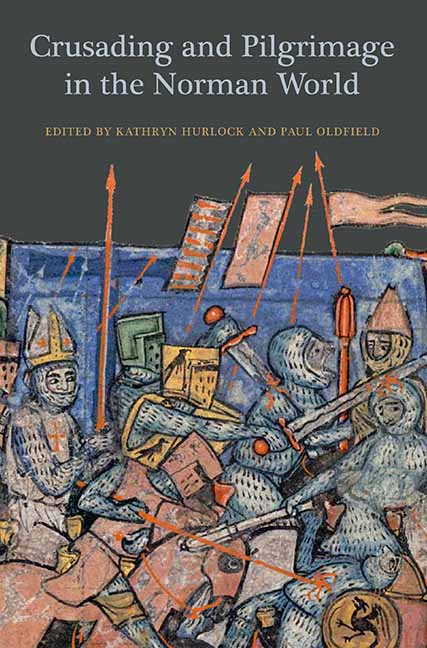4 - The Norman Influence on Crusading from England and Wales
Published online by Cambridge University Press: 25 May 2021
Summary
The tradition that the Normans were at the forefront of the early crusading movement has a long history. From the 1130s, Norman and Anglo-Norman writers were keen to establish the idea that Norman crusaders were a united force, and they highlighted the piety and military qualities of the Norman people. Several conflicts had already received papal backing by this time, and Norman mercenaries were fighting for the Byzantine emperor before the First Crusade, suggesting that they were already linked to the idea of Holy War and conflict in the East. Interpretations based on early sources understandably emphasised the Norman involvement in crusading, with works complimentary to the Normans promoting their contribution at the expense of others.
However, the publication, in 1976, of D. C. Douglas’ The Norman Fate saw one of the last works to highlight the Norman contribution to crusading as one of their most important triumphs, and their military role in the First Crusade as key to its success. Studies have demonstrated that the Normans were not the unified group portrayed in the sources, and, therefore, that the contribution made to the First Crusade by Norman combatants such as Robert, duke of Normandy, and Bohemond of Taranto was not an indication of a wider interest among the Norman gens. Indeed, what is clear is that the Normans across Europe did not form a cohesive group, and that not all Normans responded to the First Crusade with the same level of enthusiasm. What this chapter seeks to do is consider those of Norman descent who held lands in England and Wales from the time of the First Crusade (for want of a better term hereafter referred to as Anglo-Normans), looking at what role Anglo-Norman rule had on participation from England and Wales up to 1204 when King John lost Normandy, though Henry III did not renounce his claim to the duchy until 1259. It will also consider the legacy of Norman and Anglo-Norman crusading and its impact beyond this. Though participation from Normandy itself was almost non-existent after the First Crusade, it increased from England and Wales throughout the twelfth century under the leadership of the Anglo-Normans who settled in these areas after 1066, some of whom still held land in Normandy into the thirteenth century.
- Type
- Chapter
- Information
- Crusading and Pilgrimage in the Norman World , pp. 65 - 80Publisher: Boydell & BrewerPrint publication year: 2015
- 1
- Cited by



